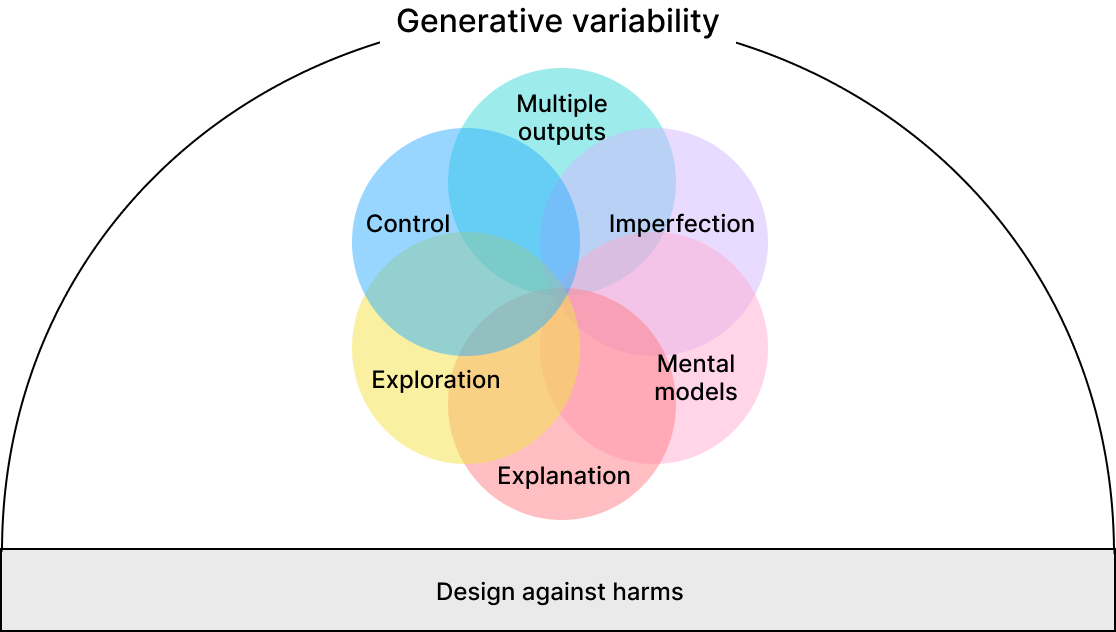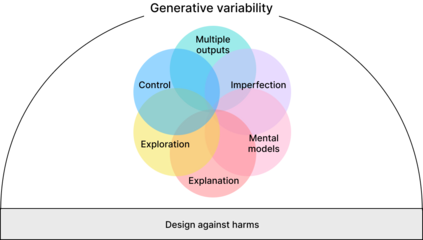Generative AI technologies are growing in power, utility, and use. As generative technologies are being incorporated into mainstream applications, there is a need for guidance on how to design those applications to foster productive and safe use. Based on recent research on human-AI co-creation within the HCI and AI communities, we present a set of seven principles for the design of generative AI applications. These principles are grounded in an environment of generative variability. Six principles are focused on designing for characteristics of generative AI: multiple outcomes & imperfection; exploration & control; and mental models & explanations. In addition, we urge designers to design against potential harms that may be caused by a generative model's hazardous output, misuse, or potential for human displacement. We anticipate these principles to usefully inform design decisions made in the creation of novel human-AI applications, and we invite the community to apply, revise, and extend these principles to their own work.
翻译:由于基因技术正被纳入主流应用,因此需要指导如何设计这些应用,以促进生产和安全使用。根据最近在人类-AI社区内对人类-AI共同创造的研究,我们提出了一套七条原则,用于设计基因-AI应用。这些原则以基因变异的环境为基础。六项原则侧重于设计基因性AI的特性:多重结果和不完善;探索和控制;以及精神模型和解释。此外,我们敦促设计者设计防止基因模型的危险产出、滥用或人类流离失所的可能性可能造成的伤害。我们预计这些原则能为在创造新的人类-AI应用方面所作的设计决定提供有用的信息,我们请社区将这些原则应用、修改和扩展到自己的工作中。






